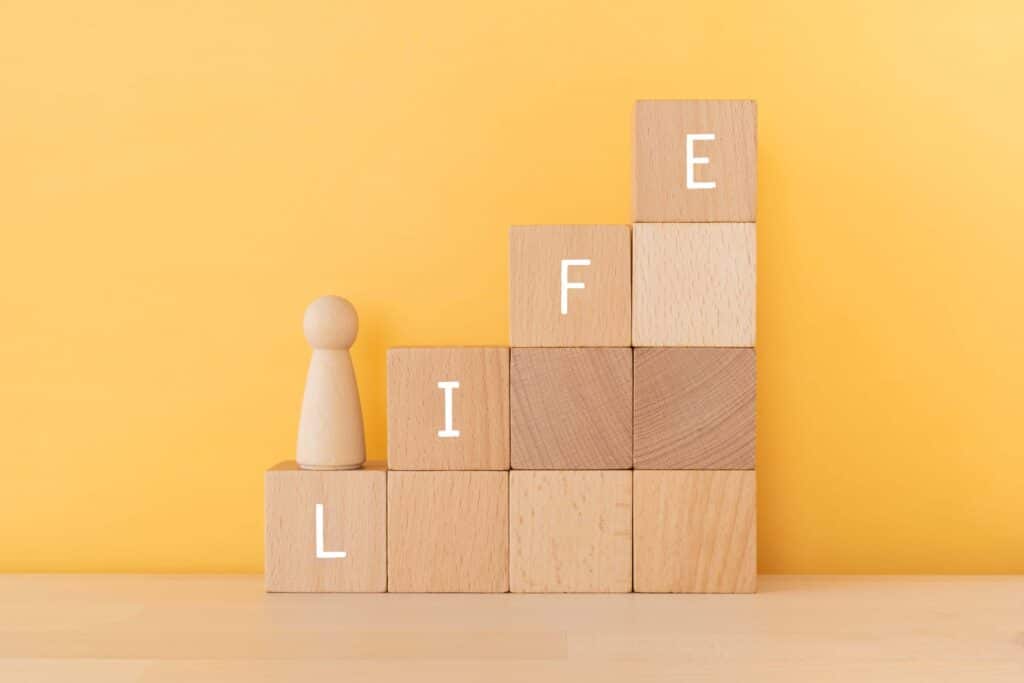
Securing Your Future With Life Insurance
You might be wondering, “Should I Get Life Insurance In My 20s?” It’s a valid question that deserves a comprehensive answer. The short answer is: Yes, getting life insurance in your 20s is a wise move. In this comprehensive guide, we’ll explore the reasons why getting life insurance in your 20s is a wise decision. Here’s why:
1. Financial Security for Your Loved Ones
Getting life insurance in your 20s ensures your family will be financially secure in the event of your untimely passing. Life insurance can provide a one-time lump sum payout to your beneficiaries, which can be used to cover funeral expenses and outstanding debts or even replace lost income.
2. Planning for Debt and Expenses
If you have the burden of student loans, credit card debt, or any outstanding expenses, a life insurance policy can safeguard your co-signers or family members from inheriting these burdens. Your policy’s death benefit can be used to pay off debts and ensure a smooth financial transition for your loved ones.
3. Creating a Foundation for Future Goals
As you grow older, life insurance becomes more challenging to obtain due to potential health issues. Securing a policy in your 20s opens up more options. It ensures that you have coverage in place as your life progresses, enabling you to focus on building a family and achieving your life goals without worry.
4. Benefiting from Cash Value Policies
Certain life insurance policies, such as whole life or universal life insurance, build cash value over time. By starting early, you allow the policy’s cash value to accumulate, providing you with additional financial flexibility in the future.
5. Navigating Life Changes
Life insurance isn’t just for married individuals with children. If you plan to get married, start a business, or have dependents in the future, obtaining life insurance now prepares you for these significant life changes.
6. Protecting Your Parents or Co-Signers
If you have co-signed loans or financial commitments with your parents or others, life insurance ensures that they won’t bear the financial burden in the event of your untimely passing.
7. Lower Premiums for Young Applicants
One of the significant advantages of getting life insurance in your 20s is lower premium rates. Insurance companies consider young adults to be less risky, resulting in more affordable insurance policies. Locking in a low premium rate early on can help you save a substantial amount of money in the long run.
8. Fulfillment of Long-Term Financial Goals
Life insurance can serve as a part of your long-term financial planning. It can act as an income replacement and protect your financial goals, such as buying a home, starting a business, or funding your children’s education, even if you are no longer there to support them.
9. Preparing for the Unexpected
As you age, the likelihood of developing health issues increases. By obtaining life insurance in your 20s, you secure coverage while you are young and healthy, eliminating concerns about future insurability if any health problems arise later on.
10. Gaining Peace of Mind
Knowing that you have life insurance coverage brings peace of mind. Life is unpredictable, and having life insurance allows you to face the uncertainties with confidence, knowing that your loved ones are protected.
Understanding Different Types of Life Insurance Policies Available
When considering life insurance in your 20s, it’s essential to understand the different types available and choose the one that best suits your needs and goals.
Term Life Insurance
A term life insurance policy is made to provide coverage for a particular period, typically 10, 20, or 30 years. If the insured passes away during the policy term, the beneficiaries receive the death benefit. This type of insurance is generally more affordable than permanent life insurance, making it an attractive option for young adults.
Whole Life Insurance
Whole life insurance policies are variations of permanent life insurance but provide protection for the entire lifetime of the insured, as long as the premiums are paid. It also accumulates cash value over time, which can be easily accessed by means of policy loans or withdrawals.
Universal Life Insurance
Universal life insurance offers flexibility in premium payments and death benefits. It allows policyholders to adjust the coverage and premium amounts throughout their lives. Like whole life insurance, it also builds cash value over time.
Indexed Universal Life Insurance
Indexed universal life insurance is a variation of universal life insurance, where the cash value growth is correlated to the performance of a market index. This option provides the potential for higher returns but with a minimum guaranteed interest rate.
Common Myths About Life Insurance in Your 20s – Debunked!
Myth 1: “I’m Young and Healthy; I Don’t Need Life Insurance”
It’s a common misconception that life insurance is only for older individuals or those with health issues. The truth is, the younger and healthier you are when you apply for life insurance, the more affordable and accessible coverage will be.
Myth 2: “Life Insurance is Expensive”
Life insurance policies tailored for young adults are remarkably affordable, especially if you opt for term life insurance. By locking in a low premium at a young age, you can save substantially compared to obtaining coverage later in life.
Myth 3: “I Don’t Have Dependents, So I Don’t Need Life Insurance”
Even if you don’t have dependents now, life insurance can still serve valuable purposes. It can cover any outstanding debts, student loans, or funeral expenses, relieving your family of these financial obligations.
Myth 4: “My Employer’s Life Insurance is Sufficient”
While employer-provided life insurance is a great perk, it may not offer adequate coverage for all your needs. Employer-sponsored policies often have limitations and may not account for personal debts or long-term financial goals.
Myth 5: “I’m Single, So I Don’t Need Life Insurance”
Being single doesn’t mean life insurance is unnecessary. If you anticipate having dependents or co-signed obligations in the future, securing life insurance now is a proactive step towards safeguarding your loved ones.
Myth 6: “I Can Always Get Life Insurance Later”
Delaying life insurance exposes you to potential health issues and increased premiums. By starting early, you secure coverage when it’s most affordable and ensure your insurability for the future.
In Your 20s and Looking For Life Insurance?
Getting life insurance in your 20s is a smart and responsible decision that can provide a financial safeguard for your loved ones and peace of mind for yourself. By starting early, you can take advantage of lower premiums, accumulate cash value, and secure your insurance for the future. Remember to assess your individual needs, understand the types of life insurance available, and choose a policy that aligns with your long-term goals.
Whether you opt for Permanent, Term, Universal, or Final Expense Life Insurance, the early adoption of a suitable policy can provide financial security, locked-in low premiums, and the opportunity to build a strong financial foundation for the future.
Here at Art Life Insurance, we understand the importance of making informed decisions about your financial well-being. We can guide you through the process, tailoring a life insurance solution that aligns with your unique needs and goals. Contact us today to explore your options or to schedule a call with one of our experts. Your future self will thank you for taking this important step during your 20s. Don’t wait for tomorrow; secure your future today with life insurance.
FAQs
What is a good age to get life insurance?
While there is no one-size-fits-all answer to this question, getting life insurance in your 20s or early 30s is generally considered a good age. Starting early allows you to take advantage of lower premium rates and secure coverage before potential health issues arise. However, the right age to get life insurance changes depending on your specific circumstances and financial goals.
How much life insurance do I need in my 20s?
The exact amount of insurance you may need will vary depending on your personal circumstances, such as your financial obligations, debts, and long-term goals. A general gauge is to have coverage equal to 5-10x your annual income.
Is life insurance necessary for single individuals in their 20s?
While life insurance is often associated with providing for family members, it can still be beneficial for single individuals in their 20s. Having life insurance can cover funeral expenses and outstanding debts, relieving financial burdens on your loved ones.
Is it better to get 20 or 30-year life insurance?
The choice between a 20-year and a 30-year life insurance policy varies depending on your unique needs and objectives. If you want coverage for a specific period, such as until your children are financially independent or until you pay off a mortgage, a 20-year policy might be sufficient. On the other hand, if you want longer-term coverage and have financial obligations that will extend beyond two decades, a 30-year policy could be more suitable.
Can I adjust my life insurance coverage as my life circumstances change?
Yes, with certain types of life insurance, like universal life insurance, you can adjust your coverage and premium amounts to accommodate changes in your life, such as getting married, having children, or buying a home.
Can I have multiple life insurance policies?
Yes, it’s possible to have multiple life insurance policies from different providers. Having multiple policies can help you tailor your coverage to your specific needs and goals.




